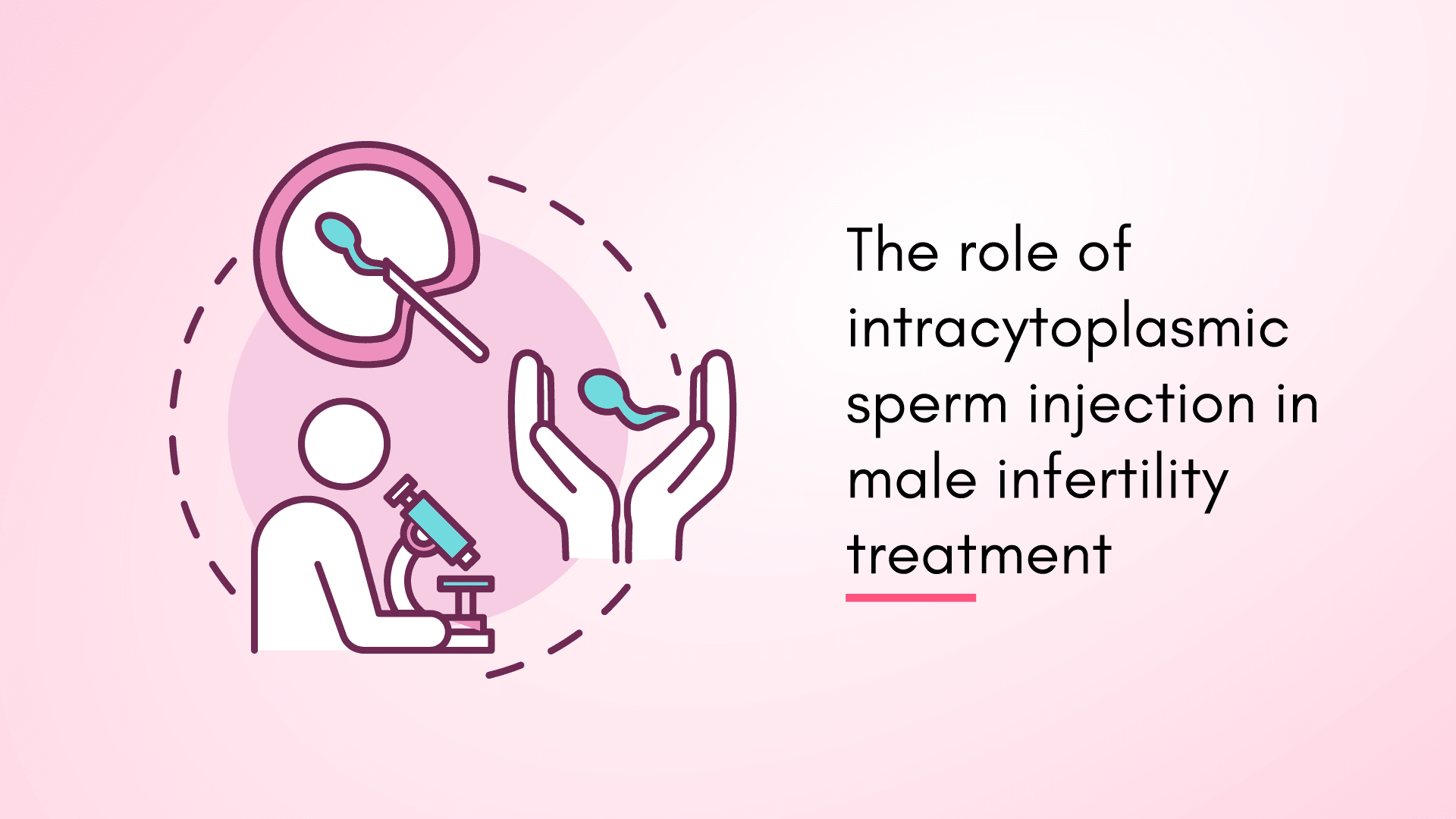Fertility may prove to be a journey that requires more time and effort on the part of the couples. Nowadays, there are a lot of advanced reproductive technologies, among which there is one that is often referred to as a hope for those who suffer from male infertility – Intracytoplasmic Sperm Injection (ICSI). In this blog, we discuss the intricacies of ICSI treatment, shedding light on its significance and its potential to address various male infertility issues with compassion and positiveness.
What is ICSI Treatment?
Intracytoplasmic Sperm Injection (ICSI) is a specialized form of in-vitro fertilization (IVF) where a single sperm is meticulously injected directly into an egg to facilitate fertilization. This technique is mostly used when there are major male reproductive concerns, which means the use of sperm to fertilize an egg through standard IVF methods is impossible.
Who Can Benefit from ICSI?
ICSI is a beacon of hope for couples where the male partner faces issues such as low sperm concentration, poor sperm motility, or abnormal sperm morphology. It is also advantageous for individuals who have experienced multiple unsuccessful IVF cycles or whose eggs have not been fertilized through traditional IVF. Moreover, it can be applied in those cases where sperm have to be collected from the testes directly because of blockage or other complications.
Types of Male Infertility Conditions Treated with ICSI
ICSI can address a wide range of male infertility issues, including:
- Low Sperm Count (Oligospermia)
- Poor Sperm Motility (Asthenozoospermia)
- Abnormal Sperm Morphology (Teratozoospermia)
- Obstructive Azoospermia
- Non-obstructive azoospermia
- Previous Vasectomy
- Ejaculatory Disorders
The Significance of ICSI in Male Infertility Treatment
ICSI plays a pivotal role in treating severe male infertility. By injecting a single healthy sperm directly into an egg, ICSI bypasses many natural barriers to fertilization, significantly enhancing the chances of successful conception. This method is invaluable for men, offering a promising solution to their fertility challenges.
Overcoming Severe Male Infertility
Intracytoplasmic sperm injection, or ICSI, is primarily used to address moderate to severe male infertility issues. It is a specialized method of fertilization in which a single, healthy sperm is directly injected into an egg. This technique allows fertilization even when the semen quality is poor, or the sperm count is extremely low.
Increased Fertilization Rates
ICSI results in higher fertilization rates compared to conventional IVF, particularly in cases of male factor infertility. This method increases the chances of successful fertilization and the creation of viable embryos.
Genetic Screening
ICSI, combined with preimplantation genetic testing (PGT), can screen for chromosomal abnormalities after fertilization. This is crucial for couples with a history of genetic diseases, ensuring that only healthy embryos are transferred.
Sperm Retrieval Techniques
ICSI often requires sperm retrieval through techniques such as Micro Testicular Sperm Extraction (Micro-TESE) or Percutaneous Epididymal Sperm Aspiration (PESA). These methods are used when sperm is absent in the ejaculate but can be extracted directly from the reproductive tract.
Treatment for Unexplained Infertility
ICSI also offers hope for couples with unexplained infertility where other treatments have not succeeded, providing a viable path to parenthood.
Improvements in Embryo Development and Selection
ICSI offers a chance to bypass fertilization hurdles. by directly injecting sperm into the egg. This can lead to better embryo development and selection through:
- Increased fertilization rates: ICSI directly injects sperm into the egg, significantly increasing fertilization rates.
- Improved embryo quality: Selecting healthy sperm can potentially lead to higher-quality embryos.
The Process of ICSI
The ICSI procedure involves several critical steps:
- Ovarian Stimulation: The female partner receives hormonal injections to stimulate the ovaries to produce multiple eggs.
- Egg Retrieval: Mature eggs are retrieved from the ovaries using a minimally invasive procedure.
- Sperm Collection: Sperm is collected either through ejaculation or surgical procedures.
- ICSI process: Microinjection is the process of using a very fine micron needle to inject a single sperm into each egg with a micromanipulator.
- Fertilization and Culture: The embryos are cultured in the laboratory for 3-5 days.
- Embryo Transfer: Healthy embryos are selected and transferred to the female partner’s uterus.
- Pregnancy Test: A pregnancy test is conducted about two weeks after the embryo transfer to confirm implantation.
Conclusion
Intracytoplasmic Sperm Injection (ICSI) stands as a remarkable advancement in reproductive medicine, offering hope to many men struggling with infertility. Its ability to address severe cases, combined with genetic screening and advanced sperm retrieval techniques, underscores its critical role in modern fertility treatments. For those seeking the best ICSI treatment, consulting the medical professionals at Ferty9 Fertility Center is a promising first step toward realizing their dream of parenthood.




























